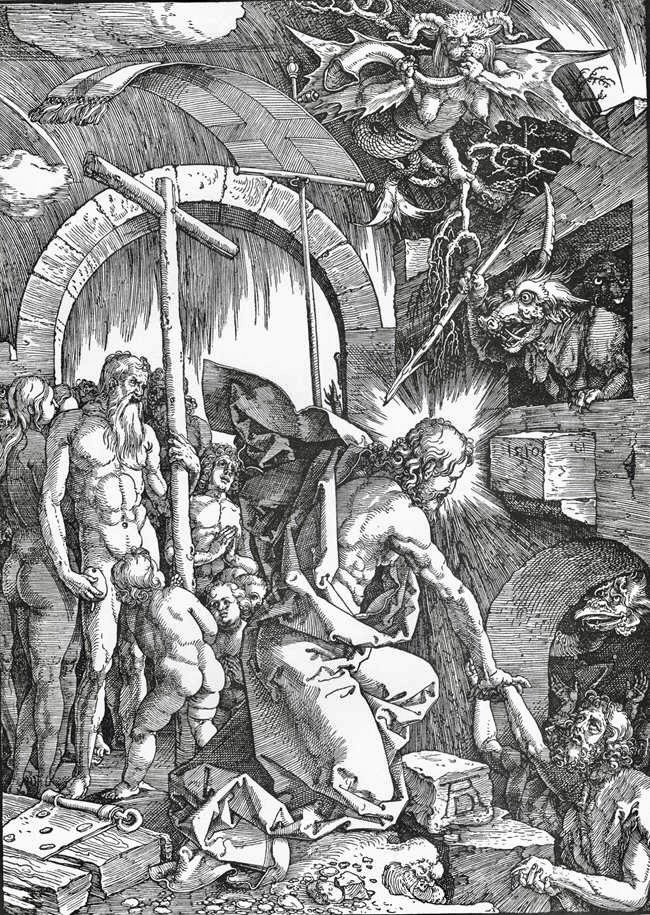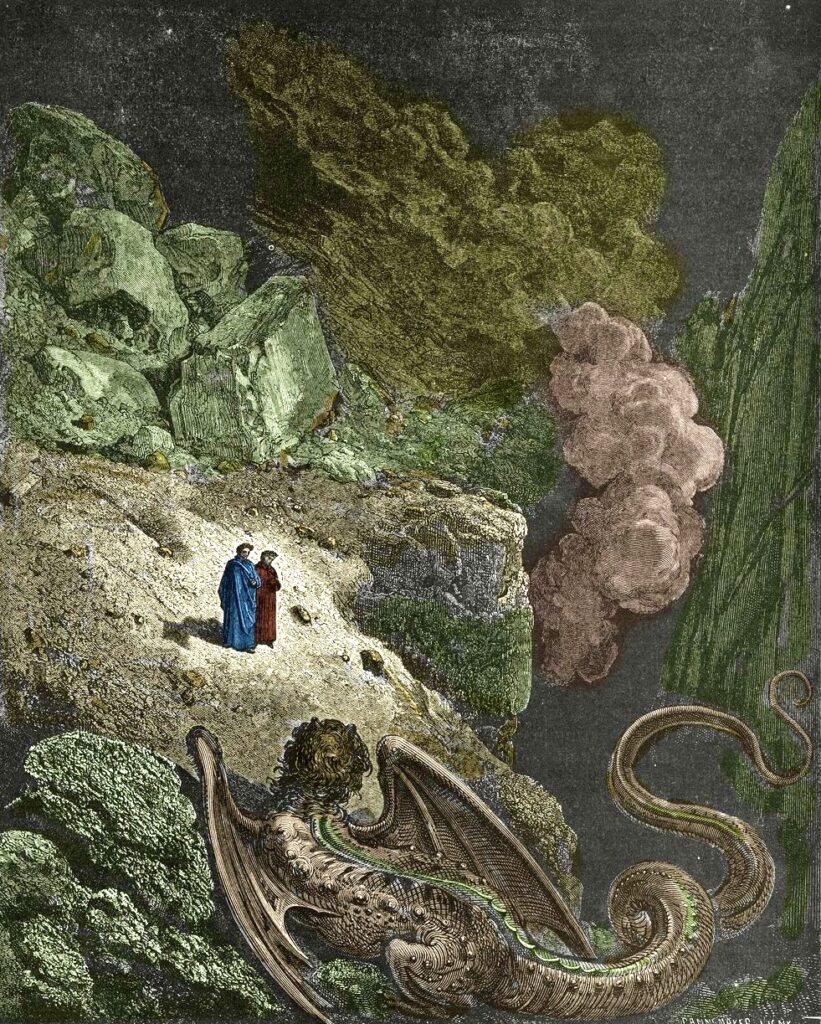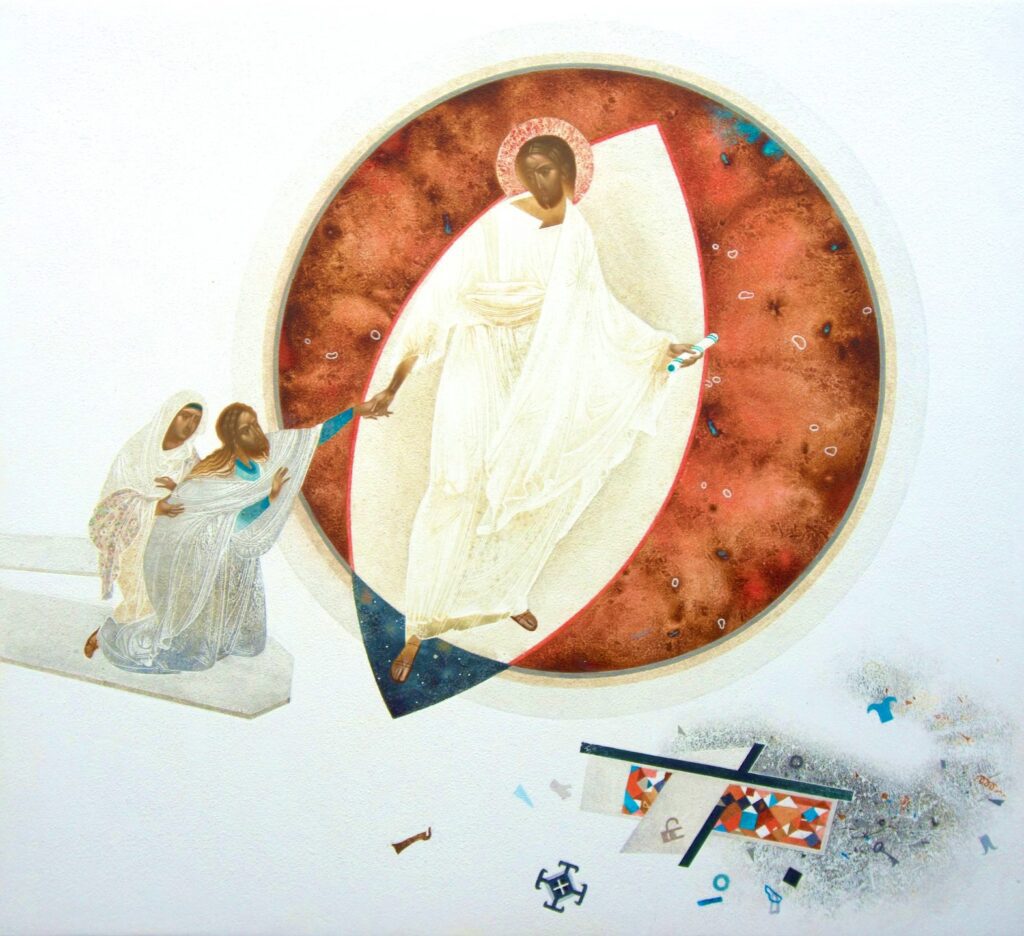The Last Laugh of Easter
03/28/2024An ancient hymn1 recounts a conversation between Hades2 (the realm of the dead) and Satan. Hades has a bad case of indigestion. After swallowing Christ on the cross, Hades has second thoughts as to whether things will turn out well. Satan mocks his worry and laughs as the victor — until the dead man Christ turns out to be the living God. Starting with Adam and Eve, Christ shatters Sheol’s prison doors, breaks shackles, grabs people by their wrists, and raises them up to their true home in the presence of the Lord as He, too, ascends to Glory. Christ enjoys the last laugh.
This is Easter. This is the work of the cross.
But we twenty-first-century tech-savvy humans tend to reduce all things, Easter included, to the most time-efficient sound bite possible, for our Inbox is full, our phones are blowing up, and we have many inputs to scroll through. We would rather be spared the details.
This is why some try to describe the crucifixion and resurrection in such reduced terms you could fit the thoughts into a trending meme. Such an approach may seem helpful in translating the mystery of the Word-Made-Flesh into digestible catch phrases. We “get it” — and are tempted to move on instead of know more. Our liability coverage is in place for our lifelong road trip to becoming nicer people.
But to say that the cross is a transactional necessity because we blew it puts us in danger of considering the cross a glorified version of a small-town tale: A teenage driver can’t pay her speeding ticket, so gruff-but-goodhearted grandpa covers it.

Easter is more — much more — than being let off the hook. The Incarnation on the cross bore a hole between Hades and heaven. It sutured Creation back to its Creator through self-giving love. Now we can ascend to heaven, and now heaven can descend to earth, and now all things can become new, beginning with our hearts. (Revelation 21:5)
Viewed this way, Sunday morning is the epilogue, not the climax, of the gospel. The high point is Saturday, when what ancient believers called “The Harrowing of Hades” took place. For on that day, while the surface of the world saw a silent Sabbath, the dungeons of the underworld were demolished with a violence eclipsing the flood of Noah.

This was the poet Dante’s understanding when he penned his epic journey through the invisible realms called The Divine Comedy, a journey that takes us from the depths of Hell’s inferno to the heights of heaven and the brilliant presence of the Lord.3 As the Roman poet Virgil leads Dante through the dismal, descending circles of darkness, the way is along the one consistent landmark: a cavernous gouge through ruined walls and toppled strongholds, cutting a path clear down to the bottom of the abysmal terrain. Virgil leads the poet on this as if it were a trail someone had blazed ahead of them.
Dante asks Virgil, “What is this?” The Latin sage replies, “This is where the Messiah burst through when he died on the cross and ransacked this realm of all who had put their trust in Him.”

In light of these things, I ask you: Would you like to be rescued from your own downward trajectory? We’re all on it; the best of us and the worst of us are booked on the same one-way trip to the tomb. But until that departure date, would you like someone to descend into your darkness and detonate a way out of all that dooms and defiles you? Would you prefer that the tomb turn out to be a tunnel to His presence rather than a grotesque and lonely terminus?
Then consider Easter: It is a proclamation of a military victory in a far-off land by a ruler on his way to claim your territory too. You had best get ready for his arrival. That’s what repentance is.
Easter is a mystery that will take the coming ages to explore, a mystery we can enter into today. And as we enter into that mystery, written on the archway of Hades above us is a joyful outburst graffitied over the solemn pronouncement Dante saw on his way down. We pause and look up: a slam poem in crabbed hand heckles the command chiseled in stone beneath it, the command to “Abandon hope, all ye who enter here.”
We read the graffiti (for graffiti always has the last word on a grandiose thing), and it is as if a long-buried saint couldn’t wait until Glory to get the words out, but grabbed the nearest lump of coal and scrawled upon the gates of Hades as the rearguard angel patiently waited for that last and happy escapee to shame Sheol’s pride with these words:
Christ is risen from the dead
Trampling down Death by Death
and upon those in the tombs bestowing Life!
© Kurt Mähler

For further exploration, read Two Views of the Cross by Frederica Mathewes-Green.
A Simple Three-verse Bible Study on the Resurrection of Our Lord
Gather as a group of two or more. Read all the verses silently. Then choose one verse and read it aloud slowly several times.
Matthew 27:50-53 (NLT) | Then Jesus shouted out again, and he released his spirit. At that moment the curtain in the sanctuary of the Temple was torn in two, from top to bottom. The earth shook, rocks split apart, and tombs opened. The bodies of many godly men and women who had died were raised from the dead. They left the cemetery after Jesus’ resurrection, went into the holy city of Jerusalem, and appeared to many people.
John 5:28 (NLT) | Don’t be so surprised! Indeed, the time is coming when all the dead in their graves will hear the voice of God’s Son, and they will rise again. Those who have done good will rise to experience eternal life, and those who have continued in evil will rise to experience judgment.
Ephesians 4:7-10 (J.B. Phillips translation) | Grace is given to us in different ways out of the rich diversity of Christ’s giving. As the scripture says [quoting Psalm 68, Septuagint version]: ‘When he ascended on high, he led captivity captive, and gave gifts to men’. Note the implication here—to say that Christ “ascended” means that he must previously have “descended”, that is from the height of Heaven to the depth of this world. The one who made this descent is identically the same person as he who has now ascended high above the very Heavens—that the whole universe from lowest to highest might know his presence.
- After the scripture is in your memory, verbally paraphrase it to one another without referring to a book or phone. Complete what is lacking in one another’s paraphrase until you have recalled all.
- Ask each other: What is one thing we learn about community in these words of the holy apostle?
- Ask each other: “What is one thing we each can do within the next 48 hours as an act of humble faith that we take these words seriously?” Consider small steps and mustard-seed actions that others could reproduce in their own lives. Decisions on new habits and long-term goals will require more structure than given here.
- Once each person has done what they have said they would do, gather again and debrief.
- Now choose another verse. Conduct the same conversation again. If you desire, once you have completed these three verses, choose three more on the resurrection of Christ.
© Kurt Mähler
Title image: The Disciples Peter and John Running to the Tomb on the Morning of the Resurrection | Eugène Burnand, 1898
Footnotes
- The Syrian hymn writer St. Romanos the Melodist (AD 475-518) composed this as a sermon set to music. ↩︎
- Hades is the Greek word for the Hebrew word Sheol. Both mean the realm where all the dead go, both good and evil. This is a different place than Hell (Gehenna), the lake of fire, where the damned go after appearing before the Lord’s judgment seat. ↩︎
- Unfortunately for us who had to read The Divine Comedy in high school, we never made it past Inferno to the good part of the tale, where we reach Paradiso and meet the Lord. It’s just too long a journey to complete before Spring Break. Hell is sufficient for high school exams. Heaven can wait. ↩︎
